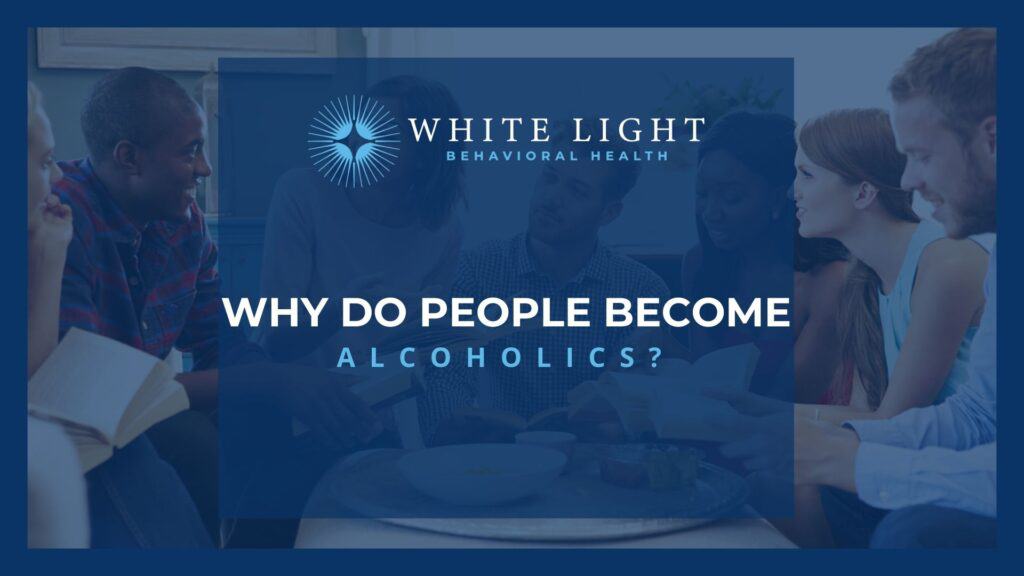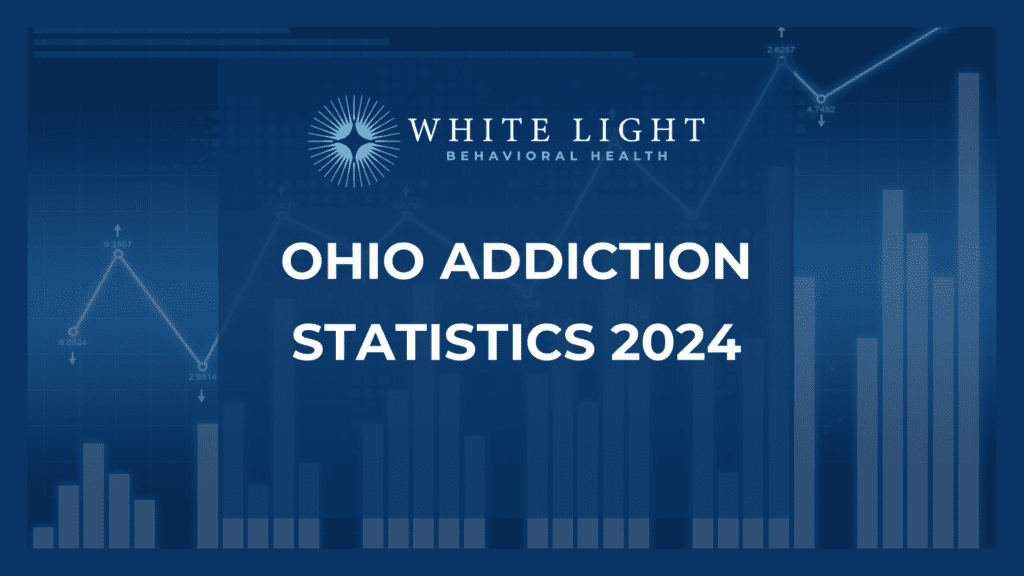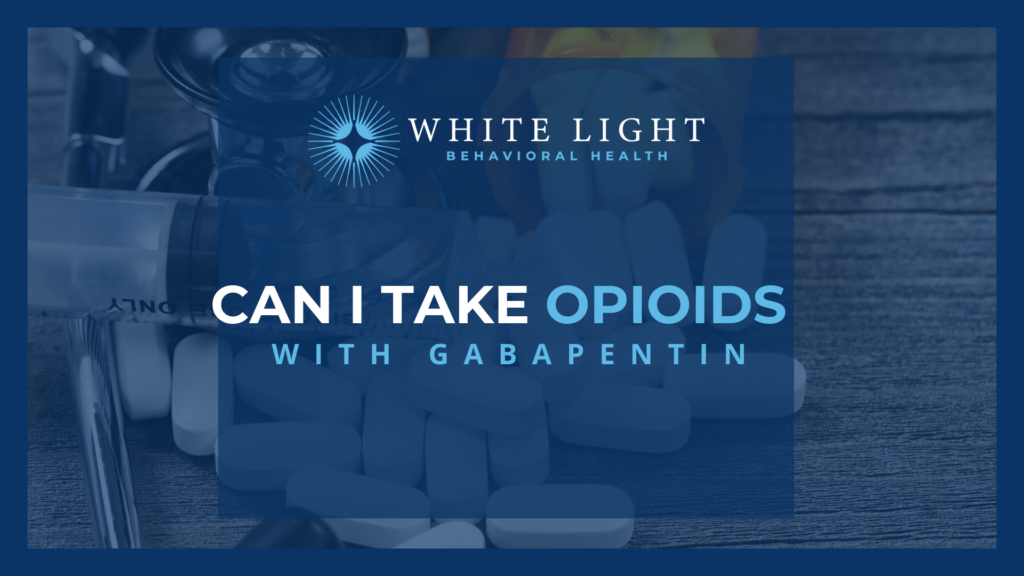Why Some People Become Alcoholics
You may wonder why some people become addicted to alcohol while others can drink excessively without developing problems if you have a loved one struggling with alcoholism. A glass of wine with dinner may be enjoyable for some people, but it can be difficult for others to stop at just one. What characteristics or experiences lead certain people to alcoholism?
Some people are predisposed to alcoholism for various reasons, while others aren’t. Alcoholism is a complex disease with multiple contributing factors, including genetics, upbringing, and mental health. There are, however, people who show no signs of risk but still battle alcoholism. In the end, alcoholics can be anyone, regardless of social status.
What Causes a Person to be an Alcoholic?
In 2021, 11.3% of people aged 18 years and above were found to have Alcohol Use Disorder (AUD), according to case study data from the National Survey on Drug Use and Health. This percentage translates to a staggering 28.6 million adults. Furthermore, during the same period, approximately 894,000 individuals between the ages of 12 and 17 (equivalent to 3.4% of this age group) were categorized as alcoholics or alcohol-dependent.
Various factors related to the frequency, quantity, and pace of alcohol consumption can influence an individual’s susceptibility to developing AUD. The following factors contribute to the likelihood of developing AUD.
Binge Drinking
Consuming a significant quantity of alcohol in a short length of time, known as binge drinking, can lead to tolerance, dependence, and, eventually, an alcohol use disorder. Regularly engaging in binge drinking can disrupt brain chemistry and reinforce addictive behaviors.
Excessive Drinking
Excessive drinking, which surpasses recommended alcohol limits, can lead to alcohol dependence and addiction. Repeated exposure to high levels of alcohol puts individuals at a greater risk of developing alcohol use disorder because it disrupts brain function and impairs decision-making abilities.
Underage Drinking
Initiating alcohol consumption at a young age poses a significant risk factor for developing AUD. People who started drinking before the age of 15 are more than three times as likely to report having AUD within the past year, according to recent national research by NCTSN focusing on people aged 26 and older. Furthermore, women face a greater vulnerability within this age group than men.
Genetic Predisposition
Alcoholism tends to run in families, suggesting a genetic component to the disorder. According to heritability estimates from the National Institute on Alcohol Abuse and Alcoholism in 2020, genetics contribute to around 60% of the risk for AUD. However, like other chronic health conditions, the interaction between genes and environmental variables substantially impacts an individual’s susceptibility to alcohol and drug use disorder (AUD). In addition, a child’s risk of developing alcohol use disorder might be affected by the drinking patterns of their parents.
Mental Health Conditions and Traumatic Experiences
There is a significant link between alcohol use disorder (AUD) and a variety of psychiatric conditions, such as major depressive disorder (MDD), post-traumatic stress disorder (PTSD), and attention deficit disorder/attention deficit hyperactivity disorder (ADD/ADHD). Those with many health issues are likelier to develop an alcohol use disorder (AUD). In addition, people exposed to traumatic events when they were younger are at a greater risk of developing an alcohol use disorder as adults.
How Do People Become Alcoholics?
Alcohol use disorder is a condition that makes it difficult for you to regulate your drinking or quit drinking, despite the numerous negative consequences of your drinking. The severity of AUD varies from person to person, with alcohol constituting the most severe case.
Addiction requires intricate brain changes to initiate. Alcohol, like many other substances, can have a profound influence on the brain, altering our emotional experiences both positively and negatively. Despite the potential dangers to an individual’s health and well-being, these pleasures can be powerful motivators for individuals to continue participating. A report by Stephen Armeli published in the National Library of Medicine in 2015 shows that using alcohol to manage stress can alleviate emotional distress. This results in more negative emotions between doses, leading to feedback encouraging continued alcohol consumption.
Continuous alcohol consumption is associated with permanent alterations in the structure and function of the brain. These changes can make it more challenging to control excessive drinking and cause people to transition from socially acceptable but infrequent drinking to out-of-control binge drinking. Notably, these alterations may persist long after a person stops drinking, making them susceptible to relapse.
Alcohol affects the brain regions responsible for decision-making, planning, and self-control. The basal ganglia regulate excessive drinking and intoxication, the prefrontal cortex handles concentration and anticipation, and the extended amygdala is responsible for negative emotion and avoidance behavior. As a result of chronic alcohol consumption, these regions endure alterations that feed the addictive cycle and make a recovery from alcoholism more difficult.
As per a study by Koob GF published in 2020 in NCBI, Understanding the intricate relationship between alcohol and the brain is essential for comprehending how chronic consumers succumb to alcoholism. By learning the neurobiological processes at play and the long-term effects of alcohol abuse, we can prevent and treat this disease more effectively. We can better assist those with alcohol use disorder to overcome their addictions if we can convince them to cease drinking.
Understanding the Disease of Alcoholism
Alcoholism is a chronic condition marked by excessive and compulsive drinking. Regular drinking has been shown to adversely affect health, relationships, finances, and mental well-being. However, some people drink for the straightforward enjoyment of it. The World Health Organization (WHO) recognized alcoholism in 2016 as one of the leading preventable causes of mortality in the United States. In addition to being fatal, alcoholism causes problems in relationships, the workplace, and families.
Alcoholics drink despite the dangers endanger themselves and their families, peers, and communities. If you or a loved one suffers from AUD, seek professional help immediately. The most effective method for dealing with these issues is to receive the appropriate treatment.
Due to stigma and other social constraints, many alcoholics refuse to seek treatment. A person may not enroll in a treatment program due to the shame associated with requesting assistance for an addiction. Alcoholism is nonetheless a disease. White Light Behavioral Health knows this, so we show compassion for our alcoholic clients.
Find Help for an Alcoholic Loved One Today
It’s never simple dealing with a loved one who drinks too much. Discord at home, relationship resentment, and mental or physical illness can be the results. Alcoholism is a disease that typically requires medical intervention for recovery. Every client at White Light Behavioral Health receives care from professionals who have completed extensive training in addiction recovery. We’ll get to the bottom of what’s motivating our clients’ drinking, offer support as they work through their emotions, and encourage them to adopt practices that will help them heal and move forward.
Don’t put off finding help for alcohol addiction in yourself or a loved one any longer. Call us today to find out which of our treatment options will work best for you.
White Light Behavioral Health
Here at White Light Behavioral Health, we recognize the havoc that alcoholism can wreak on an individual’s life, and we have a deep understanding of the damage it causes. Dependence on alcohol to an unhealthy degree is a common sign of alcoholism, associated with psychological, physiological, and social impairment. You may have a dependency on alcohol if you need it to perform daily tasks.
Physical changes, shifts in eating and sleeping patterns, and mental health problems are all signs that a person’s drinking has become excessive. These symptoms could be warning signs indicating that quick action is required. When an alcoholic tries to reduce their drinking or quit altogether, they may experience withdrawal symptoms. Sleeplessness, anxiety, depression, convulsions, nausea, and hallucinations are some withdrawal symptoms that some people suffer.
Our mission at White Light Behavioral Health, based in Columbus, Ohio, is to help our clients take the first steps toward recovery and cope with any withdrawal symptoms they may be experiencing. Due to the available resources, those who wish to begin the journey of addiction recovery can do so in a supportive and non-judgmental setting. Our expert medical detox procedures aim to reduce the psychological and physiological symptoms of alcohol withdrawal as much as possible.
Our services for alcohol withdrawal are all-encompassing and touch on a wide variety of essential points. Our skilled clinicians and counselors put the needs of each client first and act with compassion as they adapt their assistance to meet those requirements. We strive to create a warm and accepting environment for our clients to feel heard, understood, and supported at every stage of their healing journeys. Your decision to seek assistance from White Light Behavioral Health is a commendable first step toward overcoming alcoholism and regaining control of your life. Our devoted staff can provide the medical assistance and treatment needed to begin your recovery journey.
We provide compassionate and understanding services because we recognize how difficult it can be for you to acknowledge that you have an alcohol use disorder. However, medical treatment is an effective alcoholism treatment. Our rehabilitation is committed to helping clients like you regain sobriety and your whole life.
Comprehensive and Diverse Treatment Options
If you are considering seeing us for alcohol addiction treatment, learning about our treatment programs is essential. At White Light Behavioral Health, we provide evidence-based treatments tailored to the needs of different individuals.
Residential Treatment Programs
If you or a loved one are struggling with a severe addiction, our residential treatment programs provide patients with a nurturing atmosphere where they can remain for a predetermined amount of time. These rehabilitation centers have everything necessary to ensure your health and a full recovery during your stay. In addition to individual counseling and group therapy, clients have access to various resources related to healthcare, including high-quality food. Individuals from all walks of life can seek comprehensive medical care and counseling in an environment that prioritizes patient confidentiality thanks to our facility’s up-to-date features.
Outpatient Treatment Programs
Our outpatient program may be the right fit if you or your loved one requires flexibility in receiving addiction treatment while continuing with day-to-day activities. This program suits individuals with less severe addiction problems or those who have completed in-house care plans. The outpatient program allows you to visit our rehabilitation facility for medical appointments and receive continued support through aftercare programs. As an outpatient client, you can benefit from the following:
- Individualized therapy
- Life-skills education
- Relapse mitigation interventions
- Peer support
Intervention Programs
We recognize how challenging it may be to admit that one has a problem with substance abuse, so our intervention programs were developed. These programs allow family members to persuade their loved ones to recognize their addictions and to seek help by themselves or with the assistance of a professional. Not only do our intervention tactics educate people about the various treatment choices available to them, but they also raise awareness about the harmful impact that alcohol dependence has had on their lives. To meet the requirements of our customers, we employ licensed therapists, counselors, and other skilled professionals who provide various services.
Alcohol Detox
We offer a variety of drugs at our detox programs to help you go off alcohol safely and effectively. Helping you through detox and ensuring you stay healthy is a top priority for our team of professionals. An alcohol content assessment is part of the detox process, followed by stabilization with medicine and nutritional supplements. After you have stabilized, you may be enrolled in a rehabilitation program that offers psychological and emotional help. Depending on the individual, detox regimens can take a week to two weeks.
Here at White Light Behavioral Health, we’re dedicated to guiding you to recover from alcoholism. In addition to providing a wide range of treatment options, our skilled staff and welcoming setting will be by your side throughout your therapy. Contact us immediately if you want to start rebuilding your life after alcoholism.
What role does genetics play in alcoholism?
Research from the National Institute on Alcohol Abuse and Alcoholism (NIAAA) suggests genetic factors for alcohol use disorder contribute to 50% of individuals developing AUD. Individuals with a family history of alcoholism are more likely to develop AUD themselves compared to those without such a history. However, genetics alone do not determine alcoholism; environmental factors and lifestyle choices also play a crucial role.
Can stress and trauma lead to alcoholism?
Yes, stress and trauma can be significant contributing factors to the development of alcoholism. Many people turn to alcohol as a coping mechanism to deal with stress, anxiety, or unresolved trauma. However, using alcohol as a means to escape or numb emotional pain can lead to dependence and addiction over time. Addressing underlying stressors and seeking healthier coping strategies are important steps in preventing alcoholism related to stress and trauma.
How does peer pressure influence alcoholism?
Peer pressure can play a significant role in the initiation and continuation of alcohol use, particularly during adolescence and young adulthood. People may feel compelled to drink alcohol in social settings to fit in or avoid feeling left out. Continued exposure to peer pressure to drink can increase the likelihood of developing alcoholism, especially if individuals have difficulty setting boundaries or resisting social influences.
Is alcoholism linked to mental health disorders?
Yes, there is a strong correlation between alcoholism and mental health disorders such as depression, anxiety, bipolar disorder, and post-traumatic stress disorder (PTSD). Many individuals with mental health issues may turn to alcohol as a form of self-medication to alleviate symptoms or numb emotional pain. However, alcohol can exacerbate underlying mental health conditions and lead to a vicious cycle of dependency and worsening symptoms.
How does childhood environment impact the risk of alcoholism?
The childhood environment can have a profound impact on the risk of developing alcoholism later in life. Factors such as parental alcoholism, exposure to substance abuse, family dysfunction, neglect, or physical and emotional abuse can increase the likelihood of alcoholism in adulthood. Adverse childhood experiences (ACEs) can also contribute to the development of maladaptive coping mechanisms, including alcohol abuse, as individuals seek to cope with unresolved trauma or emotional pain.
Are certain personality traits associated with alcoholism?
Certain personality traits, such as impulsivity, sensation-seeking behavior, low self-esteem, and difficulty managing stress, have been linked to an increased risk of alcoholism. Individuals with these traits may be more prone to using alcohol as a means of coping with negative emotions or seeking excitement and pleasure. However, it’s essential to recognize that personality traits alone do not determine alcoholism, as multiple factors contribute to its development.
Can socioeconomic factors influence alcoholism?
Socioeconomic factors can indeed influence the prevalence and patterns of alcoholism within populations. Factors such as income level, education, employment status, access to healthcare, and neighborhood environment can impact alcohol consumption and the risk of developing alcoholism. Economic stressors, lack of social support, and limited access to resources for treatment and recovery may contribute to higher rates of alcoholism in disadvantaged communities.
How does alcoholism affect physical health?
Alcoholism can have severe consequences on physical health, leading to various medical conditions such as liver disease, cardiovascular problems, digestive disorders, neurological damage, and an increased risk of certain cancers. Chronic alcohol abuse can weaken the immune system, disrupt hormonal balance, and damage vital organs, resulting in long-term health complications and reduced life expectancy. Seeking treatment and adopting healthier lifestyle choices are essential for mitigating these risks.
Can alcoholism lead to legal problems?
Yes, alcoholism can lead to legal problems due to impaired judgment and behavior while under the influence of alcohol. Individuals with alcohol use disorder (AUD) may engage in risky behaviors such as drunk driving, public intoxication, disorderly conduct, or domestic violence, which can result in legal consequences such as fines, probation, license suspension, or incarceration. Addressing alcoholism through treatment and rehabilitation can help individuals avoid further legal troubles and regain control of their lives.
How does alcoholism impact relationships and families?
Alcoholism impacts families, causing conflict, communication breakdowns, emotional distress, and financial strain. Loved ones may experience feelings of betrayal, anger, guilt, or shame as they witness the deterioration of the alcoholic’s health and behavior. Children of alcoholics are particularly vulnerable to experiencing trauma, neglect, and dysfunction within the family dynamic, which can have lasting psychological and emotional repercussions. Seeking support, therapy, and family interventions are crucial for healing and rebuilding relationships affected by alcoholism.

Share This Post



